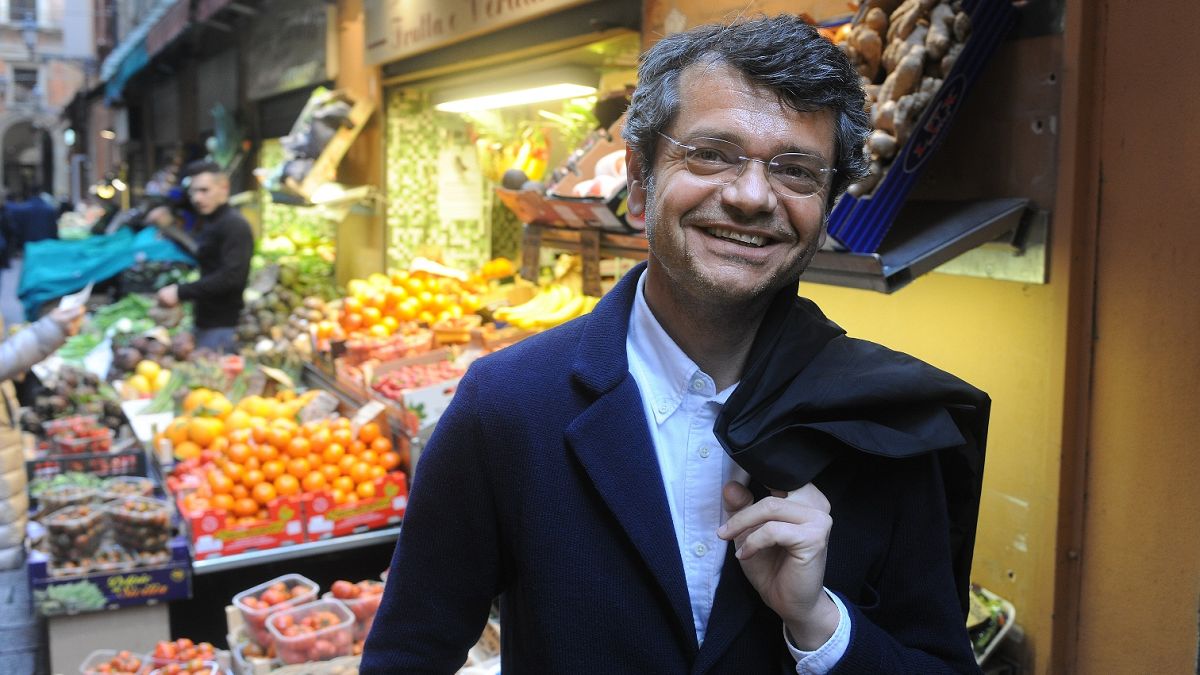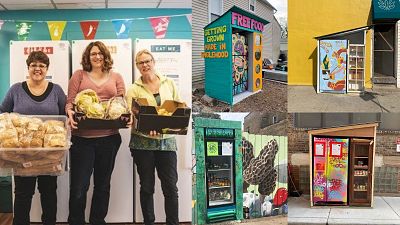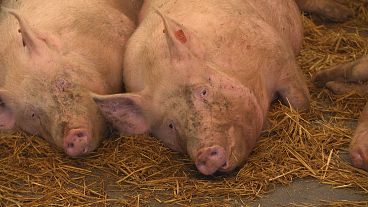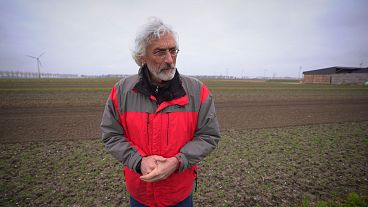One-third of all food produced for human consumption is lost or wasted through unsustainable means. In the EU, domestic households are responsible for more than half of that waste.
After decades of decline, global hunger is on the rise again. In 2019, 8.9 per cent of the world’s population suffered from levels of extreme hunger, and that was before the COVID-19 pandemic.
A booming population isn’t expected to help matters. By 2050, there will be around 10 billion people on the planet. In order to feed everyone, food production will need to increase by 60 per cent.
Food waste calculations around the world present a contradictory picture - one-third of all food produced for human consumption is lost or wasted through unsustainable means. In the EU, this number is around 20 per cent. Domestic households are responsible for more than half of that waste, and the onus is on our individual actions to address this problem.
"We need to prevent food waste, and then think about increasing production," explains Professor Andrea Segrè of the University of Bologna. His research on food waste has helped identify best practices and understand why so much food ends up in the trash.
Food waste is more than just an ethical concern - science tells us it also has a profound impact on the economy and climate change.
"We need to teach that food is a value and has an impact on the environment and our health," he says.
How to reduce food waste?
From preparing a shopping list to understanding labels: food education is key
For Professor Segrè, food education is the first solution required to engage people.
“Innovation should be in education, as well as in technology”, he says. He believes that students should learn that food is an investment, both for the planet and our health.
“This would be an innovation,” though he concedes “it should be normal”.
Teaching students how to prepare a grocery list or how to eat healthily, are some practices that could help in buying only what is necessary.
“Don’t let the grocery cart drive you. Drive it and buy only what you need”, he explains. To illustrate this, he describes how supermarket offers encourage excess consumption.
Specifically, he uses the example of buying two yogurts and getting the third one for free. Attractive offers of this kind draw consumers into making unwise spending choices.
If that third yogurt expires and is thrown away, people shouldn’t feel less guilty because they didn't pay for it.
Food waste also has an impact on your wallet. In Italy, it accounts for about 250 euros per household each year. In the EU, costs associated with food waste were estimated at around 143 billion euros in 2016.
Professor Segrè also stresses the importance of learning how to interpret product labelling. Expiration dates and the difference between "best before" and "use by", for instance.
“It’s important to teach students some rules like reading labels and knowing that if they see ‘best before', they can eat the product after one day and nothing will happen to them”.
He also recommends supporting sustainable businesses and producers. People should learn how to avoid greenwashing and how to find out if a product is truly sustainable.
Products labelled “green”, “eco” or “natural” do not guarantee sustainable practices or health benefits.
Creating local initiatives to avoid wasting good food
Implementing local systems to promote better food waste management is essential for sustainability. Last Minute Market is a primary example of the success this could entail. This social enterprise was created by Professor Segrè and develops local projects to recover unsold products and distribute them to charities.
“It is a project that matches sustainability and solidarity, avoiding waste production” he explains.
The initiative exists with food, but also with other items such as pharmaceuticals and even books. It also monitors that products meet safety requirements.
“Food safety is even more important for people in need”.
The proximity between producers and consumers is key to the sustainability of the project. The food and the beneficiaries are in the same area, so there are no transportation, storage or refrigeration costs.
Customers are encouraged to assess how, in contrast, their usual spending habits call on such harmful processes.
“It is not just about recovering food”, the Professor explains. “It is a project on logistics. We need to have a more efficient food system. This will solve, along with other instruments, the global problem that is hunger”.
Using new technologies to save food and natural resources
The fight against food waste is also a battle against climate change. When we produce food, natural resources such as soil, water and energy are needed. Throughout the supply chain, these resources are often lost. This has an impact on the environment and climate change.
“Pollution is the most relevant consequence of food waste”, says professor Segrè.
He explains that if food waste were a country, it would be the third-largest source of greenhouse gas emissions in the world, after China and the US.
Nevertheless, new technologies can help to make agriculture more sustainable and reduce losses.
“Technologies have to use natural resources more efficiently”.
The EU is taking action on reducing food waste
Halving per capita food waste at the retail and consumer level is one of the EU's main objectives for 2030 in order to meet the relevant Sustainable Development Goal. It has also committed to reducing food losses along the food production and supply chains.
“I think it is very positive. If you read the Green Deal, the new Farm To Fork strategy, the direction is clear”, Professor Segrè says.
Under this strategy, the EU also seeks to improve food security and make healthy and sustainable food more accessible and affordable to all Europeans.
There is still a long way to go, but Professor Segrè believes that Europe is taking the right path. He is optimistic that the issue is now part of the international agenda.
“Today, we even have an international day devoted to food waste awareness”, he says.
Events like this can be dismissed by activists as meager symbolism, but Segrè disagrees.
The more people with their attention on a problem, the greater scope there is for solutions.




